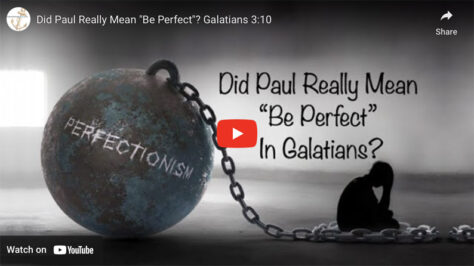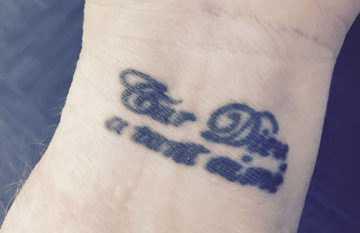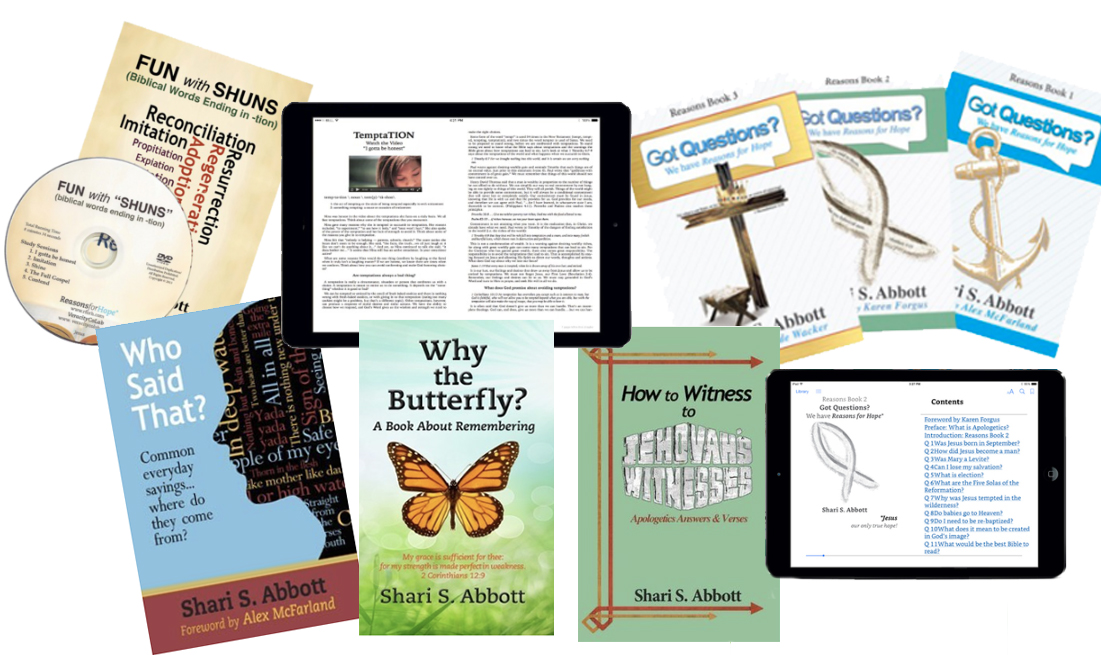Pain and suffering are realities in our everyday life. Everything we see and experience, from illnesses and injuries to grievous injustices and moral decay, are the result of a fallen world. We know that pain and suffering was not part of God’s plan. He created the earth, and all that is in it, to be in perfect harmony with His character and nature.
Nehemiah 9:6 You alone are the LORD; You have made heaven, The heaven of heavens, with all their host, The earth and everything on it…
Exodus 20:11 In six days the LORD made the heavens and the earth, the sea, and all that is in them…
Genesis 1:31 Then God saw everything that He had made, and indeed it was very good…
In the beginning, all of creation reflected God’s glory. Pain and suffering was not present. Adam and Eve’s bodies were created to be perfect in all ways — no illness or injury. Their minds were created to be governed by communion with God through the power of the Holy Spirit. So they were created with perfect bodies and godly minds capable of directing their desires and will, and reflecting God’s nature and His glory.
We also know that God created man with a free will — giving Adam and Eve the ability to make choices. Being in perfect communion with God they had everything they needed to trust God in all things, but sadly they chose to disobey God and eat of the forbidden fruit. In doing so they broke the perfect communion that they had with God and plunged the world into sin and darkness. It was at this point that evil, sickness, disease, and death entered the world — and along with it pain and suffering.
That explains where pain and suffering came from, but it does not answer the question, “why does God allow pain and suffering?”
We all too often try to understand and explain pain and suffering as being a consequence of our behavior — and sometimes it is. An expensive speeding ticket is a result of breaking a traffic law. A failing grade on a test is a result of not effectively or sufficiently studying. Some illnesses are a result of not taking care of one’s body. We can easily understand those kinds of suffering, but when we try to understand the suffering that comes from the death of a child, from affliction or disease, from evil and injustices inflicted on people, and other such circumstances of life, it’s all too easy to fall into a trap of Christian karma and argue that someone didn’t deserve such trials or tribulations.
When the question is raised, “why does God allow pain and suffering?” it’s usually because we feel pain and suffering is unjust. We never ask that question about the pain and suffering of a life term sentence for someone who has committed murder — because, we understand it was a consequence of their actions, and we reason that they deserve it as a result of what they did. The question, “why does God allow pain and suffering,” is always asked of pain and suffering experienced by those we deem to be innocent or undeserving of such affliction.
The answer to this question is that none of us are truly innocent or undeserving. Because of the sin of Adam and Eve, we are all fallen creatures living in a fallen world…and we are all subject to the consequences of our sin and that of others. Accidents and diseases do not discriminate. As mentioned above, when Adam and Eve sinned, their bodies began the dying process and they became susceptible to disease and death; and their minds and wills were no longer governed by being in perfect communion with their Creator. There’s also pain and suffering that occurs from the consequences of our sin or when we are a victim of another’s sinful actions. Whatever the reasons behind pain and suffering, we all experience it because of sin having entered the world. Praise the Lord that He provided forgiveness of sin to all who repent and trust in Christ.
Back to our question about why God allows pain and suffering. We’ve established why pain and suffering exists, but we also know that God has the power to stop pain and suffering.
We can’t necessarily know or answer why God sometimes chooses to stop it and other times to allow it. We do know that His ways are higher than ours (Isaiah 55:9), and we can never completely understand the mind or will of God (Romans 11:33-34). But we can understand what God has spoken to us through His Word.
God is loving and merciful, kind and good, all-knowing and perfect in all His ways. Therefore He never gives us anything for which He does not provide what we need to deal with it.
1 Corinthians 10:13 …God is faithful, who will not suffer you to be tempted above that ye are able; but will with the temptation also make a way to escape, that ye may be able to bear it.
This verse doesn’t mean that God won’t give you more than you can handle. What it does mean is that in his providential will (when He causes something to happen) or in His permissive will (when He allows something to happen), and when we are unable to handle, if we turn to God He will provide us what we need to go through it.
He might not keep us from pain and suffering but He will keep us (hold us and care for us) in our pain and suffering.
He will give us the comfort, peace, patience and strength we need. Pain and suffering can can be a blessing. It can bring us to the end of ourselves and cause us to turn to the God of comfort:
2 Corinthians 1:3-4 Blessed be God, even the Father of our Lord Jesus Christ, the Father of mercies, and the God of all comfort; Who comforteth us in all our tribulation, that we may be able to comfort them which are in any trouble, by the comfort wherewith we ourselves are comforted of God.
Believe that in your pain and suffering, God is ever present.
He told the Old Testament saints:
And the LORD, he it is that doth go before thee; he will be with thee, he will not fail thee, neither forsake thee: fear not, neither be dismayed. (Deuteronomy 31:8)
And He has told us…
“for he hath said, I will never leave thee, nor forsake thee” (Hebrews 13:5).
Conclusion:
When we face pain and suffering how we respond to it is a choice. If we seek God, He is faithful and He will provide.
James 4:8 Draw nigh to God, and he will draw nigh to you.
We should not waste the trials in this life, but rather use them as an opportunity to turn to the Lord and draw close to Him in trusting faith, remembering that the “goodness of God endures continually” (Psalm 52:1b) and His mercies are new every morning… great is His faithfulness. (Lamentations 3:23)
<*}}}><





















